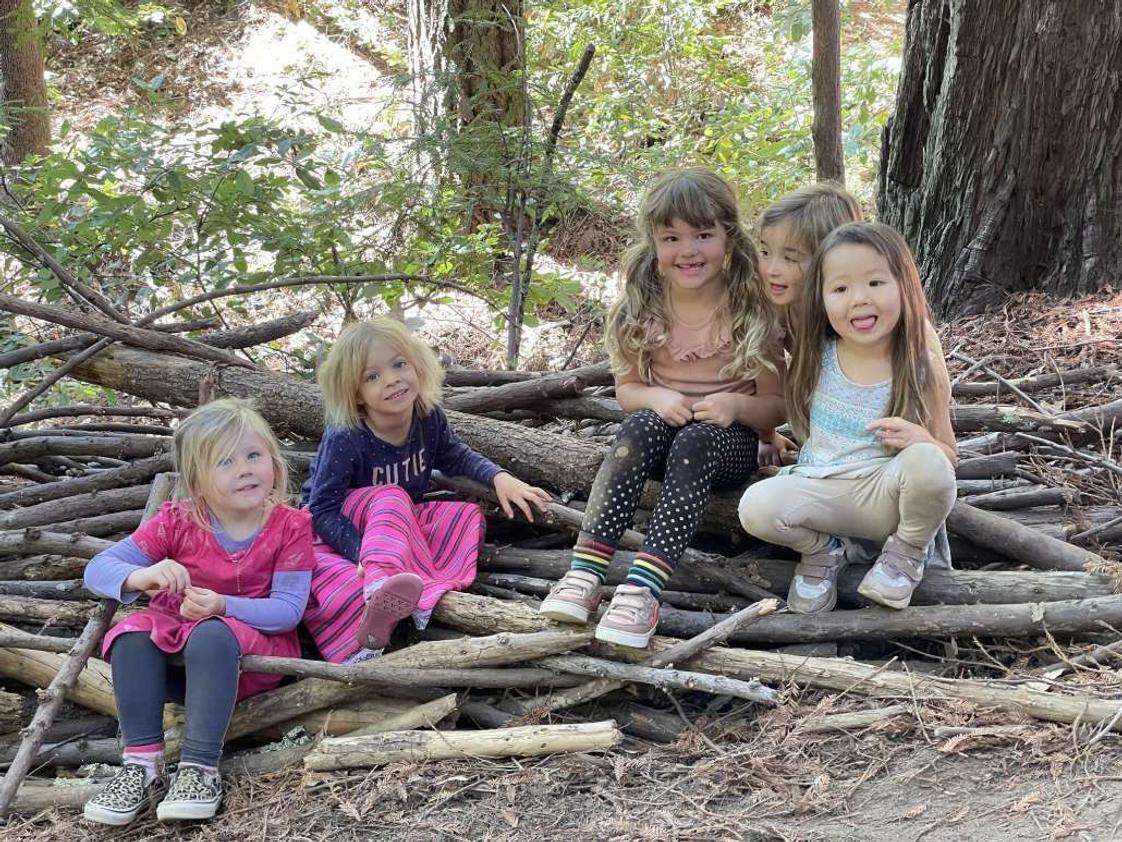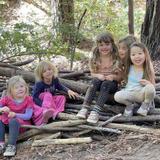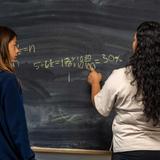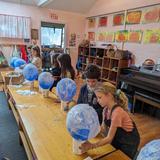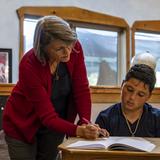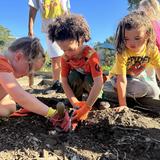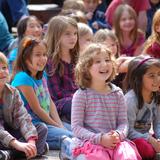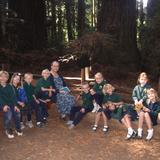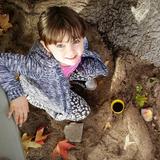Holistic Framework for Growth: The Waldorf curriculum serves as a foundation for balanced social and intellectual development, fostering the growth of the whole child.
Ongoing Support: The grades classroom teachers move up with their classes from first to eighth grade, creating deep connections between instructors and students.
Outdoor Educatoin: Regular caring for our Marisol Garden, weeklong camping adventures, and playing daily under the redwood trees gracing our campus nurture students' connection to the rhythms of the natural world and encourages ecological mindfulness.
Music: All students participate in music classes, and can choose to join the school orchestra in upper grades.
Meaningful Work: Children engage in purposeful activities both indoors and outdoors, including hands-on experiences in the garden as well as instruction in knitting, sewing, cooking, and woodwork.
Joy in Work: Students are taught to value the intrinsic joy of work and contribution to a community-building a sense of pride, purpose, and connection to others through in-school daily chores and responsibilities.
Physical and Emotional Connection: Activities promote the strength of the body, a deep connection to the earth, and a sense of unity with one another.
Social and Environmental Responsibility: Our school culture mirrors the progressive and culturally diverse spirit of Santa Cruz, emphasizing community care and sustainability.
Experiential Learning: Education is grounded in meaningful, real-world experiences that cultivate practical skills and lifelong learning.
Harmony with Nature: Daily activities integrate care for the environment, fostering respect and stewardship of natural resources.
Celebration of Community and Diversity: Cultural respect and a spirit of inclusivity are woven into the school's rich community festivals, reflecting the vibrant character of Santa Cruz.
Love of Learning: Students are encouraged to approach education with curiosity, creativity, and enthusiasm, fostering a lifelong love for learning.
Upper Grade Extensions: Our middle schoolers challenge themselves with a self-directed capstone project, elective courses, and math speciality courses.
Quick Facts (2026)
- School Type: Waldorf School
- Grades: Prekindergarten-8
- Enrollment: 136 students
- Yearly Tuition: $20,960
- Average class size: 14 students
- Application Deadline: None / Rolling
- Source: Verified school update
School Overview
School Type
School Membership(s)School Assoc.
Religious Affiliation
Grades Offered
Grades Prekindergarten-8
Year Founded
1976
Student Body
Total Students
136 students
Student Body Type
Co-ed
% Students of Color
13%
State avg.: 51%
Students by Grade
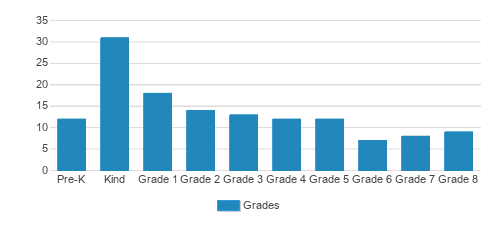
Academics and Faculty
Total Classroom Teachers
15 teachers
Student-Teacher Ratio
9:1
National avg.:
% Faculty w/Advanced Degree
20%
Average Class Size
14 students
Classroom Dress Code
Casual
Students wear neat, un-ripped clothing free from large, non-academic logos and without media characters.
Tuition and Acceptance Rate
Admission Deadline
None / Rolling
Yearly Tuition Cost
$20,960
Admissions Director
Amanda Harper
Application URL
Extracurriculars
Total ExtracurricularsTotal Extra-curric.
3 extracurriculars
ExtracurricularsExtra-curric.
Club or Organization:
Arts and Music Programs:
Math Nook - Math Games and Homework Help on Wednesdays
Arts and Music Programs:
Electives -- Upper GradesOrchestra
School Notes
- A Waldorf education is founded on the principle that a teacher's primary goal is to support the unfolding of each child's unique individual potential. By deeply understanding and addressing the developmental needs of children at every stage, Waldorf education seeks to nurture the special gifts each child brings to the world.
- A distinctive feature of Santa Cruz Waldorf School's grade school is the role of the class teacher. Ideally, the class teacher remains with the same group of students from first through eighth grade. This continuity allows the teacher to grow alongside the students, fostering a profound understanding of each child's journey. This approach cultivates a strong bond of trust and collaboration among students, parents, and the teacher, creating a cohesive and supportive learning community.
- Santa Cruz Waldorf School celebrates our connections to the rhythm of the seasons and to the natural world. Students help pick the apples from the trees of Marisol garden in fall and plant seeds in spring. They hike, rain or shine, with their teachers through the neighboring redwoods. While learning on campus or looking down from the great climbing tree on the playground, they often get to stop and marvel while the deer or wild turkeys walk by. This connection with the environment cultivates a sense of stewardship for the earth while they also find joy and inspiration with nature as part of their classroom.
- Santa Cruz Waldorf School has ongoing tour dates and rolling enrollment. We hope you'll join us.
Source: Verified school update
Frequently Asked Questions
How much does Santa Cruz Waldorf School cost?
Santa Cruz Waldorf School's tuition is approximately $20,960 for private students.
When is the application deadline for Santa Cruz Waldorf School?
The application deadline for Santa Cruz Waldorf School is rolling (applications are reviewed as they are received year-round).
School Reviews
Endorse Santa Cruz Waldorf School. Endorsements should be a few sentences in length. Please include any comments on:
- Quality of academic programs, teachers, and facilities
- Availability of music, art, sports and other extracurricular activities
- Academic or athletic awards
Recent Articles

Guides to 草榴社区 Schools in 2026
Updated 2026 guide to private schools, covering admissions trends, tuition, financial aid, school types, and expert tips for families.

Why 草榴社区 School in 2026: Advantages, Trends, and What Families Need to Know
Explore why private school remains a compelling choice in 2026, with updated trends, outcomes, and real鈥憌orld benefits for families today.

Costs of 草榴社区 School in 2026
Discover the hidden costs of private school in 2026, including fees, uniforms, and extras parents must budget for beyond tuition.

